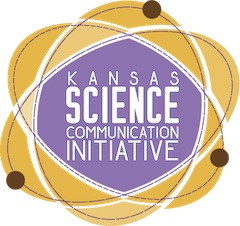November 13, 2020
Physics professor and geology graduate student receive 2020 science communication awards
Submitted by Office of the VIce President for Research

The Kansas Science Communication Initiative, or KSCI, announces the 2020 Science Communication Awards to Bharat Ratra, university distinguished professor of physics, and Sarah Lamm, master's student in geology.
Ratra directs the K-State QuarkNet program, a program funded by the National Science Foundation, that brings secondary teachers and their students — particularly those from rural schools in Kansas and inner-city schools in Kansas City, Missouri, to the K-State campus for workshops and master classes.
His outreach seeks to reach people of diverse ages and backgrounds to educate them on physics and astronomy to keep these subjects relevant and expanding with the times.
"It is important to reach out to as many potential young physicists and astronomers, as well as to their parents, in as many settings as possible," Ratra said.
Over the last three years, Lamm has spoken to audiences totaling more than 2,000 people about the Curiosity Rover. These presentations have been in Kansas, New Mexico and Arizona with 70% of audiences being from rural Kansas. For her outreach work in rural Kansas, Lamm was selected as a 2019 Mars Generation 24 Under 24 Leader and Innovator in Science, Technology, Engineering, Arts and Math, or STEAM, and Space.
"I believe science communication is key to bridging the gap between scientists and non-scientists," Lamm said.
The Science Communication Awards are given to one K-State faculty member and one student who have made excellent contributions in science communication in terms of quality and reach and are sponsored by the Office of the Vice President for Research. For this award, science communication is defined as the exchange of information about science through diverse formats for the purpose of studying the public's perceptions of science, fostering the public's understanding and use of science, and creating public conversations and partnerships that advance scientific discovery and related social issues.
The faculty awardee will receive $1,000 for research and creative inquiry activities, and the student awardee will receive $500.
Visit the KSCI website for more information and to learn about 2021 award applications.
